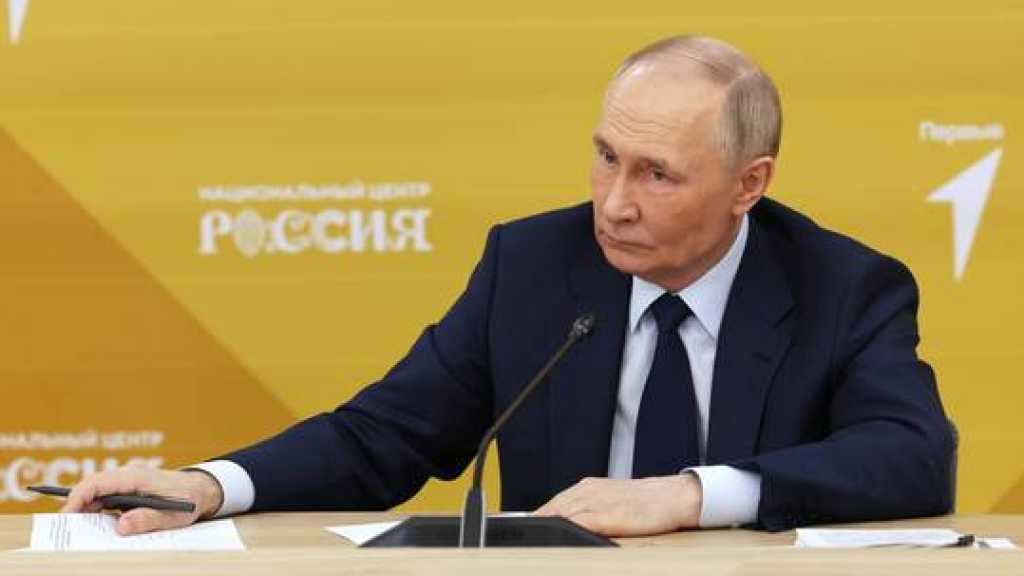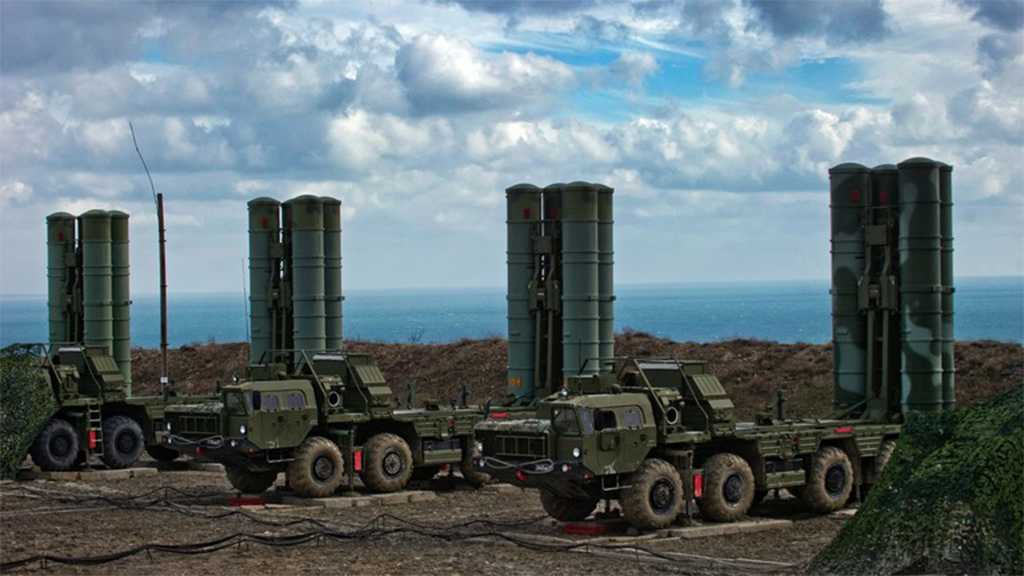Lavrov: Convinced Syria Chemical Attack A Provocation, No UNSC Resolution under Chapter 7
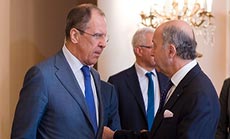
Local Editor
Russian Foreign Minister Sergei Lavrov confirmed Tuesday that his country remains convinced that the August 21 poison gas attack in Syria was a provocation by armed groups.
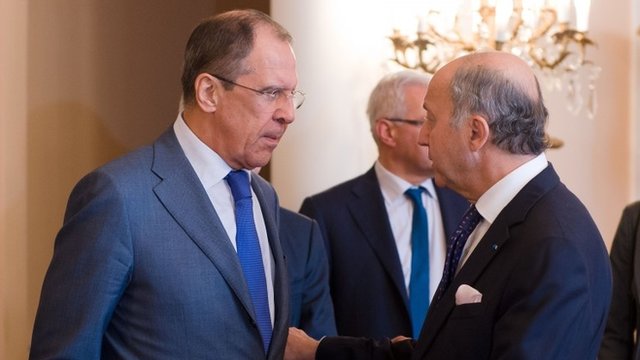 He further added that a report by UN inspectors does not answer all of its questions about the attack.
He further added that a report by UN inspectors does not answer all of its questions about the attack.
Speaking at a press conference alongside French Foreign Minister Laurent Fabius a day after UN inspectors confirmed the use of the nerve agent sarin, Lavrov said the report had produced no proof that government troops carried out the attack and that Russia still suspected rebel forces were behind it.
Fabius took the opposite view, saying the report left no doubt that the regime forces were to blame for the attack.
Lavrov said that the investigators' report proved that chemical weapons had been used but that "there is no answer to a number of questions we have asked," including whether the weapons were produced in a factory or home-made.
"We have very serious grounds to believe that this was a provocation," Lavrov said after talks in Moscow between two countries with veto powers in the UN Security Council.
He said there had been "many provocations" by the rebels and added: "They were all aimed, over the last two years, at provoking foreign intervention."
Lavrov said the UN report should be examined not in isolation but along with evidence from sources such as the Internet and other media, including accounts from "nuns at a nearby convent" and a journalist who had spoken to rebels.
"We want the events of August 21 to be investigated dispassionately, objectively and professionally," he said.
Regarding the UN Security Council resolution over Syria, Lavrov said: "The resolution that the UN Security Council is to adopt in support of the plan to destroy Syria's chemical weapons won't refer to Chapter 7 of the UN Charter, regulating the use of military force on behalf of the council."
"The resolution of the Security Council, which will approve the decision of the OPCW executive council, will not be over Chapter 7. We said it distinctly in Geneva and the document that we agreed on says no single word about it," he confirmed.
The UNSC would act on such occurrences, which may be Syria drawing away from the deal, some other party hampering the destruction or possibly somebody using chemical weapons again, Lavrov said. But such actions will be considered on a separate basis.
"The Security Council would certainly review [any of such reports] to establish the truth as soon as possible, to ensure that those reports are not provocations - and we had plenty of those in the past two years and all of them were aimed at provoking a foreign intervention. If the proof is convincing, the Security Council certainly must take measures against violators," the minister said.
As for the future resolution on dismantling Syria's chemical arsenal, it would be a litmus test for the UNSC, Lavrov said.
"We may grab on to Chapter 7 every time somebody claims that the regime or the opposition used chemical weapons and encourage playing on emotions, which is unacceptable when taking serious decisions. Or we may rely on professionals, who must evaluate thoroughly, impartially and objectively every piece of such information and report to the Security Council," he said.
The Russian and French ministers said they agreed that the goal of the international community now is to gather an international conference in Geneva, which would find a political solution of the crisis and establish a transitional government in Syria.
Lavrov said Moscow is prepared to set a date for such a conference anytime, because the Syrian President Bashar al-Assad government had agreed to it and presented its delegation. It is the opposition which is dragging its feet and refuses to participate, he stressed.
"The [opposition] National Coalition vocally opposed the Russian-American plan to destroy Syrian chemical weapons... because they were expecting that the problem would be solved through a military intervention. And they were disappointed after the intervention failed to materialize and the issue went to the strictly diplomatically-legal framework," Lavrov pointed out.
He asked the Western backers of the Syrian opposition, who have leverage on them, to use it and force those forces to participate in the peace conference. He also added that some statements from Russia's partners regarding personalities in the Syrian government do not help with that goal.
"The more often and louder statements from some capitals, including Washington, European and Middle-Eastern countries come saying that Assad is a criminal and that he has no place on Earth other than at The Hague Tribunal, the more defiant becomes this coalition, which claims the right to represent the entire Syrian people," he explained.
Source: News Agencies, Edited by website team
Comments

Putin Envoy to Visit Washington
2 months ago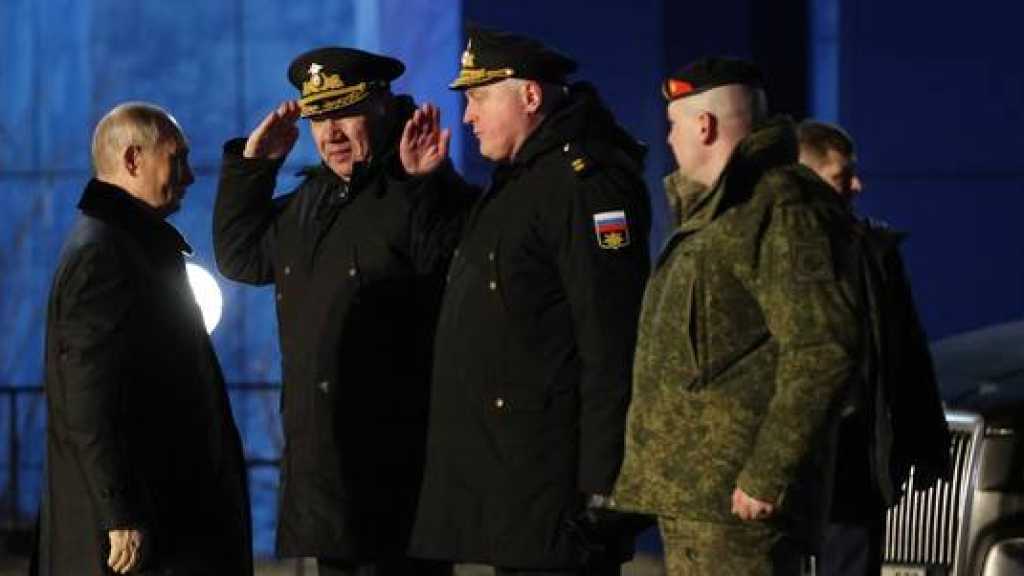
Putin: Russia to Finish Off Ukrainian Forces
3 months ago